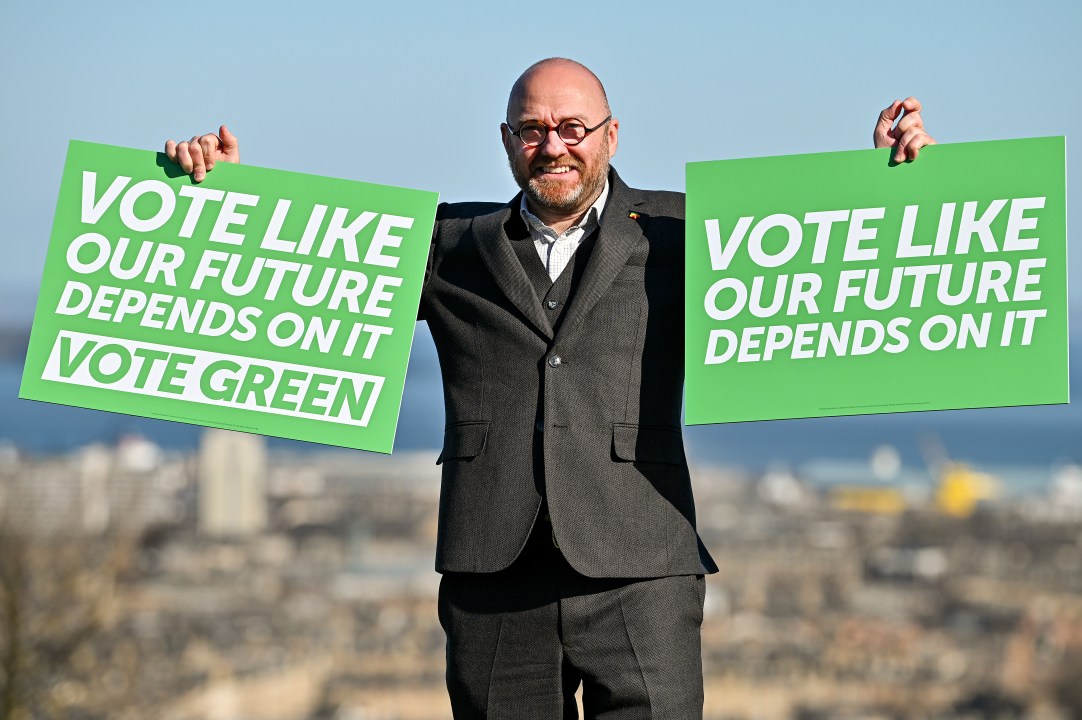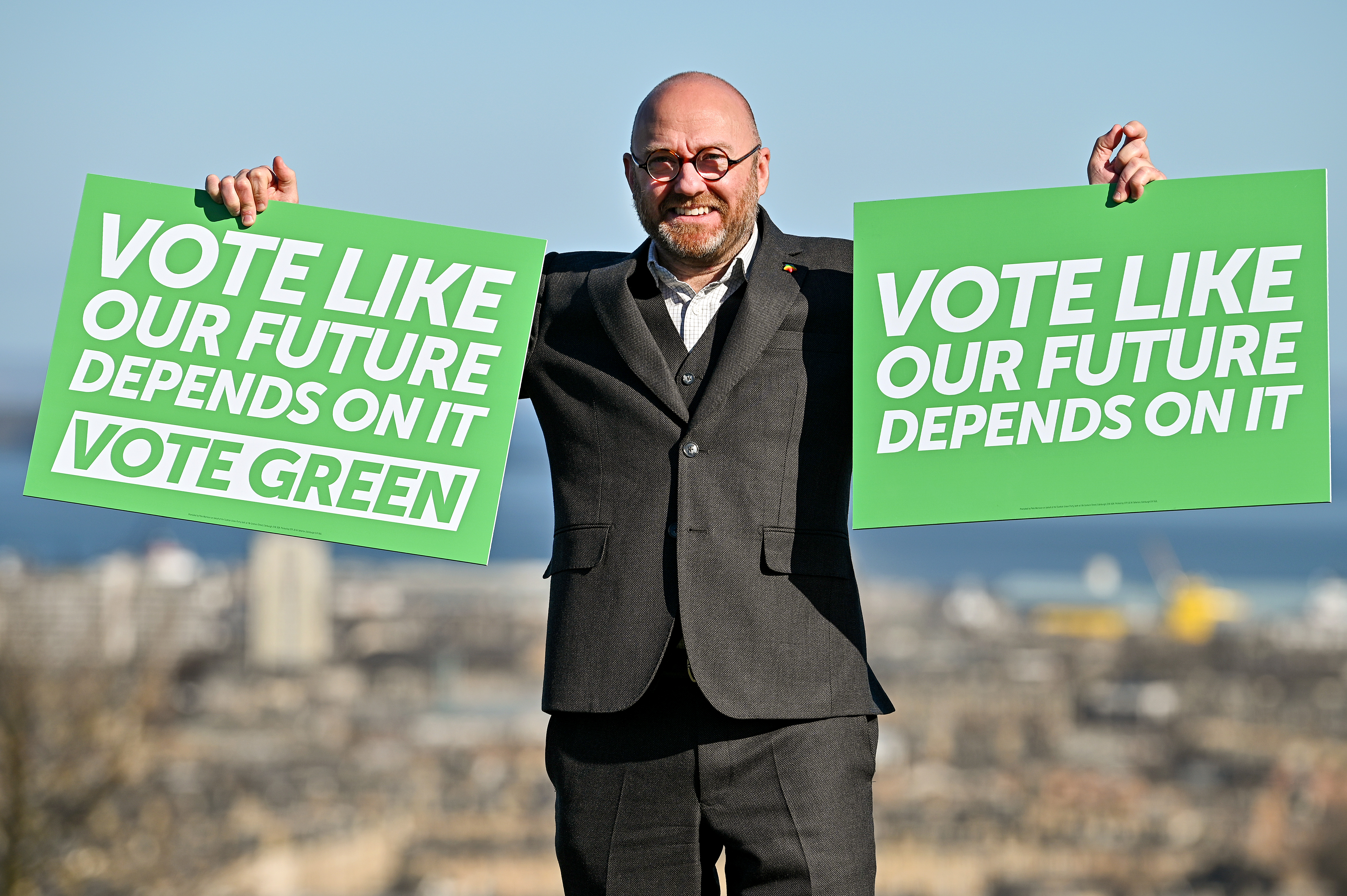When Scottish Green Party co-leader Lorna Slater urges people to vote as if ‘their future depends on it’, she’s not warning the electorate about the planet’s climate crisis. Independence is what Ms Slater, a Canadian-born engineer and trapeze artist, really craves.
Scotland’s Greens may brand themselves as guardians of the environment, but observers could be forgiven for thinking their primary political purpose is to act as the Waitrose wing of the SNP.
The Scottish Greens exist to allow middle-class revolutionaries to reconcile their belief in solidarity with their conviction that it stops at Gretna Green and their deeply-held egalitarianism with their concern that the average SNP voter is a bit council scheme. You know, the sort of people who watch EastEnders and don’t ferment their own kimchi. Scottish Greens are nationalists in every sense except that they recoil from the word itself as though from unethically-sourced hemp.
They pride themselves on their commitment to equality, which is why the party’s top job is shared between a man and a woman. But while there have been four women in the leadership job share since 2008, there has been only one man. Step forward Patrick Harvie, Glasgow list MSP for 18 years and arguably one of the most irritating characters in Scottish politics.
‘Arrogant’, ‘self-satisfied’, ‘sanctimonious’ are just a few of the epithets his fellow MSPs use to describe the man who could offer Nicola Sturgeon the independence ‘supermajority’ of her dreams.
Scottish Greens are nationalists in every sense except that they recoil from the word itself as though from unethically-sourced hemp.
When he and Slater launched their manifesto a few days ago, Harvie was open about his ambitions. ‘We do aspire to take a role in government,’ he admitted and suggested that the Greens would be willing to have a conversation with the SNP about a formal coalition.
Sturgeon may baulk at the prospect of a deal with her former mentor and now bitter enemy, Alex Salmond, leader of the Alba Party, the SNP’s breakaway faction, but she will be open to the idea of working with Harvie if he can give her the numbers to force a second referendum.
After all, he has proved to be a reliable lackey since 2016, when the SNP failed to win an outright majority. Harvie teases Sturgeon with his annual ‘will he, won’t he’ charade in the run up to the crucial budget vote, but he and his fellow Green MSPs invariably press their voting button in favour of whatever the SNP administration has put forward. Not for nothing has Harvie been dubbed Sturgeon’s sock puppet, a role he seems happy to play for as long as it keeps him in the limelight.
His detractors – and there are many – say his biggest failing is not his overweening vanity, but his failure to extract any green political capital from his proximity to power.
‘He has been essential to Sturgeon for the past five years,’ says one parliamentary colleague, ‘but he has gained very little for his loyalty. At heart he’s a classic Trot, he thinks it’s enough to be against things rather than form alliances for real change.’
The Scottish Greens may boast that it was their influence that changed the SNP’s thinking on issues such as free school meals for primary children, but they have singularly failed on the one big environmental issue where they could have made a significant impact, land reform.
Indeed, in a move that can only be described as idiotic, Harvie recently allowed himself to lose the one person who could have delivered the Scottish Greens a legacy and transformed Scotland for the better.
Andy Wightman is a serious man with serious credentials. He is arguably Scotland’s foremost expert on land ownership, a highly respected campaigner, author and researcher. He was also a Scottish Green MSP until he was shunned for wrongthink on the tensions between gender self-identification and women’s sex-based rights. His views are moderate and expressed respectfully but by last December he felt he could no longer remain within a party which seems to relish stridency on these matters.
Wightman, who is standing as an independent on the Highlands and Islands regional list, objected to the Greens’ ‘alienating and provocative stance’ on trans rights, and claims he was threatened with expulsion for expressing his views. In his resignation letter he said the party had ‘become very censorious of any deviation from an agreed line’.
’It takes a special type of arrogance to lose someone as important to the green cause as Wightman,’ says a political opponent.
Trans rights is the line which no self-respecting Green can cross if they wish to remain in Harvie’s good books. He claims the Scottish Parliament has been ‘used as a platform for transphobic hatred and bigotry’. When a Twitter user accused Johann Lamont, a former Scottish Labour leader, of ‘a vicious bit of transphobia’, Harvie replied: ‘I’m sorry to say we can expect more of that when it comes to stage 3 of the Hate Crime Bill.’ Lamont and like-minded MSPs had simply dared to highlight women’s sex-based oppression, a notion that used to be known as ‘feminism’.
But Harvie brushes off any criticism with a sneer that could sour organic soya milk at ten paces. His skin is thicker than his owlish glasses. His recent parliamentary ‘tribute’ to the late Duke of Edinburgh showed him at his snide worst, when he reminded parliament that ‘there is no extreme of wealth, privilege or status which can protect us from mortality,’ and criticised Philip – a pioneering environmentalist – for his love of ‘the bloodsports of the wealthy’.
Politics is a bloodsport of sorts. Patrick Harvie may never be master of the hounds, but he and his pack of Green terriers have proved to be loyal servants of the SNP in their pursuit of independence. And he has shown himself eager for the next hunt.








Comments